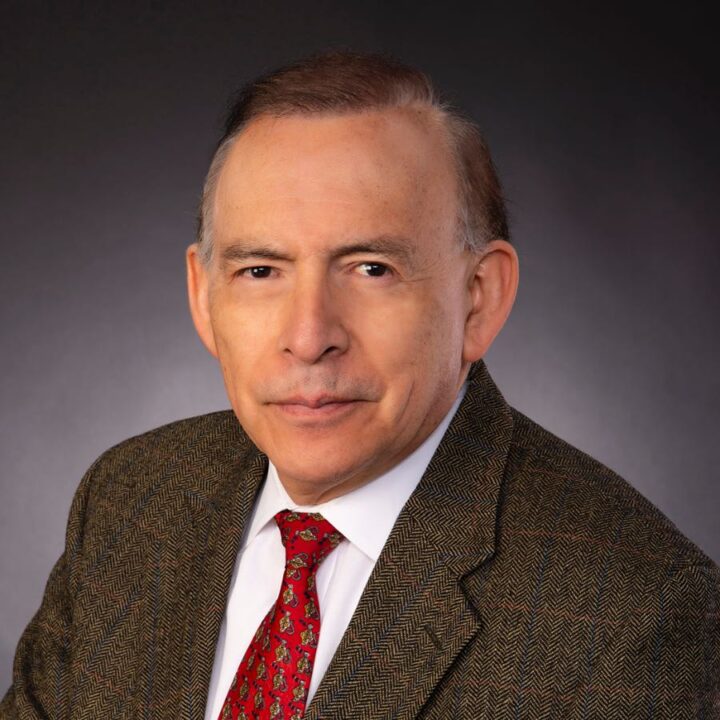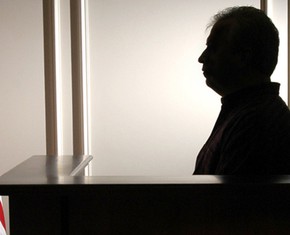The views expressed in our content reflect individual perspectives and do not represent the authoritative views of the Baha'i Faith.
As international economist and Baha’i, Dr. Augusto Lopez-Claros, discussed in part one of this interview, there are more than 700 million extremely poor people in the world who earn less than $2.15 a day. They often suffer from malnutrition and lack access to clean water, electricity, and basic health services.
Although the United Nations called for the elimination of extreme poverty by 2030, they reached a consensus that this goal is out of reach. While it’s not uncommon for individuals to feel disheartened by the challenge of reducing disparities, I find solace in turning to the Baha’i writings and the promising vision they present — a world characterized by justice, equity, and equality. At a talk in New Jersey in 1912, Abdu’l-Baha, the authorized interpreter of the Baha’i writings and the son of Baha’u’llah — the prophet and founder of the Baha’i Faith, said:
Among the results of the manifestation of spiritual forces will be that the human world will adapt itself to a new social form, the justice of God will become manifest throughout human affairs, and human equality will be universally established.
…Through the manifestation of God’s great equity the poor of the world will be rewarded and assisted fully, and there will be a readjustment in the economic conditions of mankind so that in the future there will not be the abnormally rich nor the abject poor. The rich will enjoy the privilege of this new economic condition as well as the poor, for owing to certain provisions and restrictions they will not be able to accumulate so much as to be burdened by its management, while the poor will be relieved from the stress of want and misery.
Radiance Talley: Thank you, Augusto, for taking the time to explain how the wealth gap between the extremely rich and poor can be reduced, so we can realize this promise that is foretold in the Baha’i writings. Can you share how the central figures of the Baha’i Faith addressed the problem of poverty and inequality?
Dr. Augusto Lopez-Claros: Let me take both of these issues in turn, first addressing the issue of poverty and then inequality.
As early as 1875, Abdu’l-Baha had written an insightful treatise addressing a range of issues that economists today would recognize as capturing some of the most fundamental questions of development economics, identifying the factors, policies and institutions critical for unleashing processes of sustained economic growth and prosperity. In “The Secret of Divine Civilization,” he unambiguously advocates the benefits of interaction with the rest of the world. He chides 19th-century Iranian society for its parochial outlook and suspicion of “new systems and procedures” and “progressive enterprises” which have made an enormous contribution to the development of other nations. “Were the people of Europe harmed by the adoption of such measures?” he asks. “Or did they rather by these means reach the highest degree of material development?’
Abdu’l-Baha repeatedly touched upon the importance of integrity in public service, in one of numerous such passages writing, “While the setting up of parliaments, the organizing of assemblies of consultation, constitutes the very foundation and bedrock of government, there are several essential requirements which these institutions must fulfill.” Their elected members must be high-minded and incorruptible, they must be cognizant of the highest principles of law, fully versed in the rules that “govern the management of internal affairs and the conduct of foreign relations” and “content with their lawful emoluments.” He was likewise forward-looking in emphasizing the importance of education and training, regarding them as essential ingredients for the prosperity of the world and the development of nations, placing “the expansion of the frontiers of knowledge” at the basis of “Europe’s progress and civilization.”
At various moments during His ministry, Bahá’u’lláh expressed concern for the waste of resources and what this meant for the plight of the poor. For instance, in the early 1890s, when visited by the Cambridge orientalist Professor Edward G. Browne, He told him: “…we see your kings and rulers lavishing their treasures more freely on means for the destruction of the human race than on that which would conduce to the happiness of mankind,” an observation that remained tragically relevant during the following century. Although, in Browne’s account, there is no indication of what might “conduce to the happiness of mankind,” there are numerous other references in the Bahá’í writings that suggest such things as investments in education and training, in public health and those infrastructures that lead to the modernization of the state and enable it to better serve the public.
This concern with the efficient allocation of scarce resources, at the heart of how contemporary economics views the world, was echoed frequently by Abdu’l-Baha and Shoghi Effendi over the next several decades, as they sought to elaborate the implications of the principles laid down by Bahá’u’lláh. For instance, in addressing the question of peace and security, Abdu’l-Baha stated in 1912:
The greatest catastrophe in the world of humanity today is war. . . . All the European nations are on edge, and a single flame will set on fire the whole of that continent. Implements of war and death are multiplied and increased to an inconceivable degree, and the burden of military maintenance is taxing the various countries beyond the point of endurance.
Armies and navies devour the substance and possessions of the people; the toiling poor, the innocent and helpless are forced by taxation to provide munitions and armament for governments bent upon conquest of territory and defense against powerful rival nations.
In his letter to the Central Organization for a Durable Peace, now known as “The Tablet to the Hague,” Abdu’l-Baha referred to the weapons of war as “the malignant fruits of material civilization” and suggested that had material civilization been imbued with spiritual principles “these fiery weapons would never have been invented. Nay, rather, human energy would have been wholly devoted to useful inventions and would have been concentrated on praiseworthy discoveries.”
Radiance: What solutions does the Baha’i Faith offer to reduce the wealth gap?
Augusto: Abdu’l-Baha did not limit himself to merely identifying the presence of such problems as poverty and inequality. He also put forward practical solutions to address them. To take several examples: Abdu’l-Baha argued forcefully for the introduction of progressive systems of taxation. He said:
If the poor person gives one-tenth of his income and the rich person one-tenth of his income, it will be unjust. Thus, in this way a law should be made that the poor person who has only ten kilos and needs them all for his necessary food, be exempt from paying taxes. But if the rich person, who has ten thousand kilos, pays one-tenth or two-tenths taxes on his products, it will not be a hardship to him.
He also addressed the issue of profit-sharing, indicating that it was essential for a better realignment of the interests of owners and workers, of capital and labor: “…the owners of properties, mines and factories should share their incomes with their employees, and give a fairly certain percentage of their products to their workingmen, in order that the employees may receive, beside their wages, some of the general income of the factory, so that the employee may strive with his soul in his work,” adding that “the satisfaction of the daily needs and the feeling of justice in the distribution of wealth will change the jealous attitude of labor into one of co-operation and happy industry. For every producer, in the Bahá’í state, will receive not only wages, but a share in his profits.”
Furthermore, he convincingly argued that bringing an end to centuries of discrimination against women should be central to economic development strategies and would usher in a new stage in the development of humankind; gender equality would not only have vast economic ramifications but would also be a prerequisite for the establishment of peace and security in the world.
Radiance: Can you provide some examples or case studies where specific measures to mitigate income inequality have led to tangible and positive outcomes?
Augusto: We are not lacking in knowledge about how to address the problems of poverty and inequality. The recipes are well known and Abdu’l-Baha’s proposed solutions, as noted earlier, when applied in different parts of the world — progressive taxation, building a social safety net to protect the poor, emphasizing education and training, ensuring that we educate girls and empower women rather than treat them as second-class citizens enduring various forms of discrimination, that we set aside war for the ruin that it brings to our national treasuries and the waste of scarce resources that they imply — have been brilliantly successful.
What we are lacking is political will and a more developed sense of human solidarity, as we realize that we come from the same stock and are now citizens of one common home, our one and only home, the planet Earth.

















Comments
Sign in or create an account
Continue with Googleor